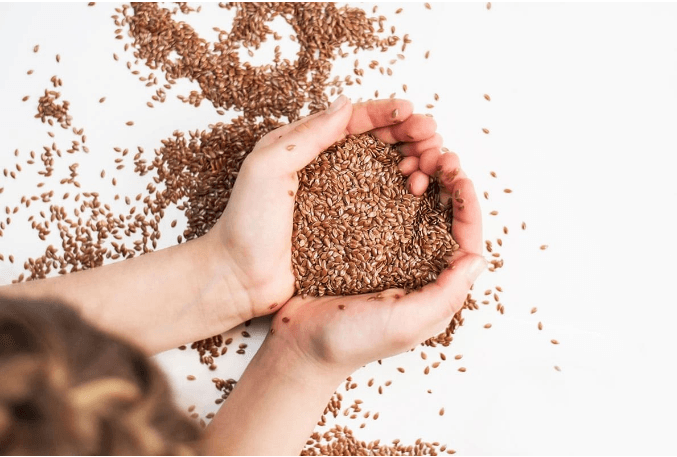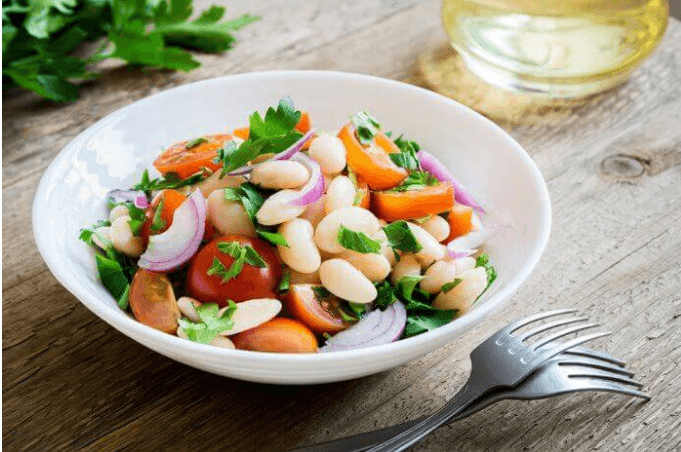Adding these simple foods to your diet can make a big difference.
Arthritis is an incredibly common condition, affecting more than 50 million Americans. It is a catch-all term for joint pain or joint disease, and can be caused by a number of factors, such as genetics, dietary choices, poor lifestyle habits, the natural aging process and environmental causes.
Unfortunately, arthritis is the leading cause of disability in America, leading to painful and disabling conditions. Fortunately, there are treatment options available to help ease symptoms or prevent further damage from arthritis – such as regular physical activity or medications – enabling individuals to remain active regardless of their diagnosis.
Arthritis is a complex condition that can affect people of any age and from any demographic. There are over 100 different types of arthritis that fall into four general categories – degenerative, inflammatory, infectious and metabolic. Degenerative arthritis (often referred to as osteoarthritis) is the result of normal wear-and-tear on joints. Inflammatory arthritis (most commonly rheumatoid arthritis) occurs when the immune system attacks self tissue in a joint, usually causing painful swelling and inflammation in the affected area.

Infectious arthritis is caused by an infection elsewhere in the body spreading to a joint. Last but not least, metabolic arthritis (more commonly known as gout) occurs when there’s an accumulation of uric acid crystals in a joint, leading to severe pain and swelling – often occurring at night. Ultimately, while all forms of arthritis share similar symptoms – such as swollen joints and stiffness – it’s important to note that each type has distinct characteristics.
Arthritis causes constant pain and strain to those affected, but thankfully, scientific research may be providing a solution – food. Registered dietitian Andrea Dunn, RD, LD, CDE is among the scientists who have identified certain foods that could possibly help reduce inflammation and alleviate pain associated with arthritis.

The variety of these foods are seemingly endless and range from familiar items such as chili peppers and ginger to more unique choices like tumeric and green tea. Understanding how diet can potentially improve our health is an invaluable step in managing arthritis; hopefully with further research we can find comfort from this common affliction.
Here are some suggestions to eat to on an anti-inflammatory diet. Numbers four and nine are excellent as a beverage. You might be surprised at number 5 if you love ethnic food!
12. Dark chocolate

Even though dark chocolate has become a fan-favorite treat, medical experts have not conducted enough research to determine with certainty if its regular consumption can reduce inflammation. Therefore, it is important to exercise caution if deciding to indulge in this sugary delight. Rather than limit yourself to your typical candy bar, you can explore higher cocoa content dark chocolate varieties. These choices usually contain less sugar than those with lower cocoa content and they might provide the same benefit while having fewer negative impacts on health.
For those who are looking for yummy alternatives that could cut down on inflammation, why not try some whole grain options? Expert nutritionist Tracy Dunn recommendation eating whole grains such as freekeh from Middle Eastern cuisine or teff as found in traditional Ethiopian flatbreads. If you haven’t sampled these unique flavors yet, it might be worth integrating them into your diet today!
11. Broccoli, Brussels sprouts and Cabbage

Eating broccoli, Brussels sprouts and cabbage may provide specific benefits for those with arthritis. Sulforaphane, a compound found in cruciferous vegetables, is known to help protect cartilage from damage.
In addition to sulforaphane, these green powerhouses are packed full of vitamins A, C, and K plus antioxidants that have been demonstrated to have protective effects on cells. Suggested health benefits associated with consumption of the cruciferous family go beyond just protection from the development of arthritis; in fact, studies even indicate eating these foods may help prevent it altogether.
10. Omega-3 Supplements

Omega-3 fatty acids are essential for overall health and wellbeing, as they can help fight inflammation. The quickest way to get your omega-3 fix is by eating fatty fish like salmon, tuna, trout, and mackerel. But if you’re not a fan of seafood, try chia seeds, walnuts, eggs rich in omega-3s, and other nuts instead.
For an even more nutritious diet, replace your normal cooking oils with omega-3 containing extra virgin olive oil, walnut oil, avocado oil and safflower oil: not only will these provide you with a hefty dose of omega-3s but also have cholesterol lowering properties. So what are you waiting for? Start adding these power foods to your everyday meals!
9. Garlic

Garlic, onions, and leeks may be the key to fighting diseases associated with cartilage damage. These three plants contain diallyl disulfide, an enzyme blocker which prevents further destruction of existing cartilage, as well as quercetin – a powerful antioxidant that reduces inflammation. But one of garlic’s most important benefits is their ability to fight infection.
While consuming four cloves of raw garlic daily can lead to side effects such as an upset stomach, those who opt to use a powder or aged supplement of garlic extract can still get the same effect without onion and garlic breath being unavoidable. Thankfully it appears that including these vegetables in your diet could be beneficial for reducing both physical discomfort and long term medical concerns.
read more : TOP 10 BREATHTAKING NATURAL WONDERS OF CANADA
8. Tart Cherries

Tart cherries are widely known for containing an antioxidant called anthocyanin, which continues to become more widely recognized for its anti-inflammatory properties. Studies have even suggested that tart cherries can be just as effective at reducing inflammation as taking NSAIDS but without the potential negative side effects.
Interestingly enough, strawberries, raspberries, blueberries and blackberries also contain anthocyanins, but the amounts vary significantly between these types of fruits. Including 8 ounces of tart cherry juice into your daily routine is a great way to increase your anthocyanin intake and reap its anti-inflammatory benefits while avoiding additional sugar or sweeteners that may cancel out its health effects.
7. Turmeric

Turmeric, a commonly found spice in Indian cooking, has quite the history. As far back as Ayurvedic medicine, turmeric has been used to ward off inflammation and its related diseases. Scientists are now researching why the claims were true – turns out that turmeric is high in curcumin, an antioxidant with powerful anti-inflammatory properties.
Though you can use it freely when seasoning up your meals, since you’d need a significant amount of turmeric to reap any real benefits, you may want to look into getting a supplement with curry and black pepper added (pepper helps your body absorb the curcumin better). So if you’re looking for an outright medicinal remedy for ailments like arthritis, look no further than good old turmeric!
juvenile rheumatoid arthritis !
6. Vitamin C

Vitamin C offers many benefits for people living with arthritis. Consuming Vitamin C, whether naturally through foods or through supplements, has the power to reduce inflammation and help repair bones, cartilage, and other skeletal components. Those suffering from osteoarthritis in particular should consider adding more fruits full of Vitamin C to their diets such as oranges, grapefruits, strawberries, kiwi, pineapple, and cantaloupe.
Additionally, if you are supplementing your nutrition with Vitamin C it is important not to go overboard—taking more than 65 to 85 mg can lead to kidney stones! Eating natural fruit sources of Vitamin C gives your body an opportunity to take what it needs and discard the rest in a healthy way.
5. Nuts and Seeds

Nuts, a powerful source of nutrition, are gaining health popularity due to their arthritis-fighting properties. Not only do they contain calcium, magnesium, zinc and vitamin E – but also alpha linolenic acid (ALA), a powerful Omega-3 fatty acid that can protect your heart and alleviate inflammation in the joints. Eating nuts comes with one caveat though: they’re quite high in calories, so be sure to practice moderation when consuming them.
An even healthier alternative to nuts for those wanting the anti-inflammatory benefits of Omega-3s is flaxseed or chia. Both powerhouse seeds contain an abundance of nutrients and provide the body with healthy amounts of ALA – especially when ground up and consumed regularly. For best results, grind these seeds in a coffee grinder before adding it to your diet for maximum benefits.
4. Dairy

While dairy can be a healthy snack that promotes strong bones due to its high calcium and vitamin D content, it is also known to cause inflammation. To make sure you are still getting the benefits from dairy, try opting for low-fat versions of regular dairy products such as yogurt and cheese. Swapping regular yogurt for Greek yogurt or cottage cheese for ricotta can help make your snacks healthier by further reducing fat and sugar levels.
If you want to completely avoid dairy, the good news is that there are plenty of vegetables that offer similar health benefits which won’t worsen inflammation. Leafy greens like spinach, kale and broccoli contain sulforaphane which is great for fighting arthritis. Enjoy these in their raw form or roasted or lightly steamed state.
read more : 15 Most Amazing Restaurants in the World
3. Green Tea

Who knew a simple cup of green tea could be so beneficial to your health? It can help protect from arthritis, cancer, depression and much more. Green tea contains an antioxidant called epigallocatechin-3-gallate (EGCG), which blocks joint-damaging molecules, reducing inflammation and slowing cartilage destruction. Also found in green tea are antioxidants that fight the development of illnesses such as diabetes, Alzheimer’s and cardiovascular issues.
Daily consumption of green tea can lead to enhanced mental agility, improved digestion, better skin health and greater antioxidant protection throughout the body. And all this with only one cup a day! Make sure though to not add sugars or artificial sweeteners as they can diminish or even erase potential health benefits. Green tea is an easily accessible drink that everyone should certainly include in their diet to provide numerous obvious health advantages.
2. Whole Grains

Eating whole grains like oatmeal, chia seeds, and brown or wild rice can be beneficial for your health because of the added fiber. Studies have shown that adding fiber to your diet has a positive effect on reducing CRP levels – with high levels of CRP often indicating inflammation associated with conditions such as heart disease, diabetes and rheumatoid arthritis.
While you include these great sources of fiber in your diet, it is important to ensure everything is balanced. Avoid white and wheat flour, white rice, too much butter and sugar, etc. Taking the time to make an educated food choice will result in more energy and better overall health!
1. Beans

Boosting your intake of beans can provide powerful long-term health benefits. Beans are packed with healthy properties that support good nutrition, such as folic acid, magnesium, iron, zinc and potassium. They also contain an impressively high fiber content that helps to reduce CRP–a significant marker of chronic inflammation.
Experiments have demonstrated that consuming beans daily significantly reduces CRP levels within 8 weeks! Try incorporating red beans and kidney beans into your lunches or dinners–just make sure they’re fully cooked before eating. If you’re looking to get more fiber in your diet outside of beans, healthy options include chia seeds, whole fruits and vegetables and quinoa. Who knew making a few simple changes in the kitchen could bring such big rewards?
Questions
What is the main cause of arthritis?
What are 5 symptoms of arthritis?
What are the 3 types of arthritis?
What does arthritis pain feel like?
juvenile idiopathic arthritis ?
rheumatoid arthritis is ?

